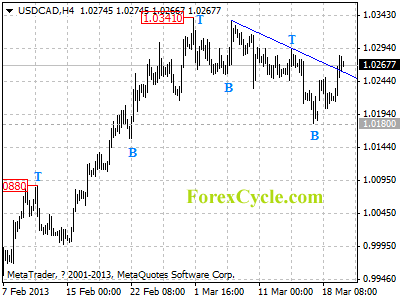London Gold Market Report
from Ben Traynor
BullionVault
Wednesday 20 March 2013, 08:45 EST
GOLD dropped below $1610 an ounce Wednesday, as stocks, commodities and the Euro all regained some ground lost since news of the Cyprus bailout negotiations broke over the weekend.
“We still believe that an interim low was made in February and that the precious metal should reach the January low at “1625.77 in the weeks ahead,” says Commerzbank senior technical analyst Axel Rudolph.
Gold in Euros fell back below €1250 an ounce as the Euro rallied from a four-month low against the Dollar, following news that Cypriot lawmakers have rejected plans to impose levies on bank depositors.
Silver prices meantime failed to break above $29 an ounce, drifting down towards $28.80 by lunchtime in London following what Rudolph calls a “sluggish bounce”.
Banks in Cyprus remained closed Wednesday as part of the extended bank holiday that could now last until next week, while press reports suggest Cyprus is discussing the option of capital controls.
Cyprus central bank governor Panicos Demetriades predicted yesterday that depositors could withdraw 10% or more of total deposits when banks reopen.
The Cypriot parliament yesterday rejected revised plans to impose a levy of 6.75% on bank depositors with more than €20,000 and 9.9% on those with more than €100,000. No member of parliament voted for the proposals, which form part of a €10 billion European Union-International Monetary Fund bailout out currently under discussion.
Cypriot president is expected to speak to Russian president Vladimir Putin today, after Cyprus’s finance minister flew to Moscow last night.
“The Cypriot authorities wanted to conduct [Tuesday’s] vote so that they could reaffirm the extent of their difficulties to the Europeans…[it] is not the end of the process, but instead kicks off a further round of negotiation with Moscow and Berlin,” says Alexander White, London-based European political analyst at JPMorgan Chase.
“[Germany’s] objective in this case is to remove the implied support for the Cypriot banking system, so that it can no longer function as a large offshore financial center whilst receiving a European [Central Bank] backstop… absent such a transformation, Germany appears ready to live with the consequences of Cyprus stepping out of Europe.”
“Germany wants a solution,” said German chancellor Angela Merkel this morning.
“We will continue negotiations, primarily via the troika [of the EU, ECB and IMF].”
“As recently as in January, Cypriot banks offered 4.5% for a 1-year deposit while other peripheral countries, including Italy and Spain, offered about 2.5%, and Germany 0.9%,” points out a note from UniCredit, adding that depositors putting their money in Cypriot banks would have made around €23,000 more since 2008 than those depositing in Germany.
“Why does the Cypriot parliament (and many commentators) seem to suggest that a 15% tax on such deposits…would be unreasonable now the banks are in trouble, but that German, Italian and other Eurozone taxpayers should rather foot the bill? To me, the Cypriot position is simply un-sellable in the rest of the Eurozone.”
The situation in Cyprus is “a good thing for Russia,” says Sergey Cheremin, head of Moscow’s department for economic and international relations.
“It’s totally changed the perception of Cyprus…it shows those Russians who keep their accounts in Cyprus that it’s not a heaven, it’s a hell. It will encourage a lot of Russian companies to concentrate their resources in Moscow.”
In London meantime, UK chancellor George Osborne unveiled his latest Budget Wednesday, announcing that the official growth forecast for the UK this year is 0.6%, down from its previous forecast of 1.2%.
The Pound fell against the Dollar following the news, reversing gains made earlier in the day following the publication of Bank of England minutes.
BoE governor Mervyn King, who steps down this summer, again voted for an extra £25 billion of quantitative easing at this month’s Monetary Policy Meeting, the minutes show. As in February’s meeting, King was in the minority of a 6-3 vote.
Over in the US, the Federal Reserve makes its latest policy announcement later today, with most analysts predicting no change to the Fed’s $85 billion a month QE purchases.
Gold’s premium over platinum meantime narrowed to around $50 an ounce this morning, having hit $60 yesterday, from a discount of $80 a month earlier.
Gold value calculator | Buy gold online at live prices
Editor of Gold News, the analysis and investment research site from world-leading gold ownership service BullionVault, Ben Traynor was formerly editor of the Fleet Street Letter, the UK’s longest-running investment letter. A Cambridge economics graduate, he is a professional writer and editor with a specialist interest in monetary economics. Ben can be found on Google+
(c) BullionVault 2013
Please Note: This article is to inform your thinking, not lead it. Only you can decide the best place for your money, and any decision you make will put your money at risk. Information or data included here may have already been overtaken by events – and must be verified elsewhere – should you choose to act on it.



